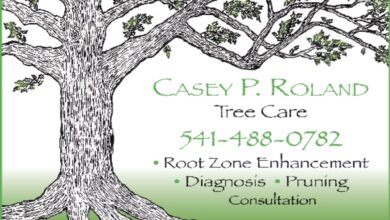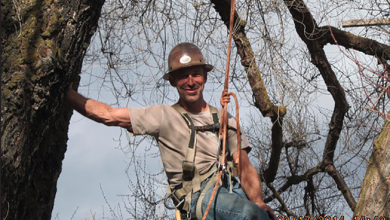A License to Kill…
Can you name any occupation where a “licensed” professional can intentionally perform shoddy or substandard work with nary a peep from the entity that licensed them in the first place?
An attorney, for example, would be under fire and risk disbarment. A medical doctor would be in trouble with the A.M.A. An auto mechanic (in certain states) would have to answer to the B.A.R.
To do tree work in Oregon, the State requires that the “arborist” have the following: a license from either the Construction Contractors Board (a C.C.B license), or the Landscape Contractors Board (L.C.B), a million dollars worth of liability insurance, and a surety or performance bond.
After meeting these conditions he or she is free to do ANYTHING to a tree with no repercussions! The International Society of Arboriculture has a certification program that consists of testing and continuing education to maintain that certification, but it is not a license. The I.S.A. is one of the best things to happen for setting the standards for arboriculture, but again, it is not a license.
If a tree company butchers the heck out of your tree, the state simply does not have the ability to strip them of their license.
If a building contractor licensed with the C.C.B. intentionally used common nails instead of box nails (if so specified on the plans) on a house he was building, the C.C.B. would come down on him like a load of bricks, make him tear it all out and redo it, fine him, or shred his license.
If an arborist with the EXACT same license can do all the wrong things to your 500-year-old black oak and all you hear is crickets, something is seriously wrong with this picture!
There are local ordinances in some cities that do set standards for tree work, but the enforcement is spotty, at best.
Who to hire, then? How do you know if the person you hire is the right guy or gal for your beloved tree?
Besides references, you may just have to go with your gut feeling, they are almost never wrong. Beware of someone who will just cut any old thing you tell them to. If you have to tell your tree care professional how to care for your tree, that should be a huge red flag!
Experience, tools, licence, insurance, references and knowledge are no exception for someone willing to intentionally do lousy work just because you are willing to sign a check.
On the lighter side, the majority of tree care companies out and about are doing some pretty good things to (and for) trees in general, so the deck is stacked in your favor. If you see good tree work being performed in your neck of the woods, don’t be shy about telling the arborist or owner of the tree, it can go a long way towards raising the bar for the standards of arboriculture…



